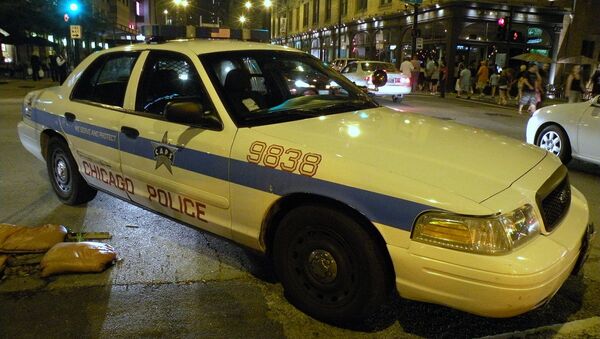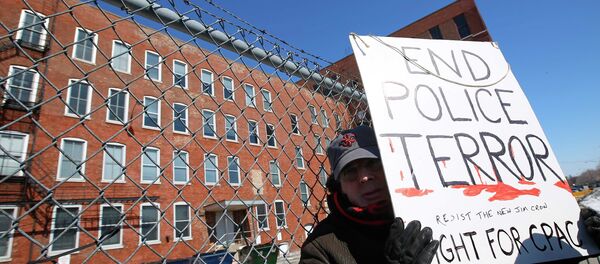CHICAGO (Sputnik) – The impunity shown to Chicago police when they shoot and kill unarmed people is because those judging their actions are either retired police officers or lawmen on inactive duty, an African-American man whose son was brutally shot in 2011 by police, told Sputnik.
“I always say, ‘it’s the policemen policing the police… It’s favoritism. Out of all the 5,000 cases the Independent Police Review Authority (IPRA) has reviewed over the last 10 years, police were found guilty only 47 times,” Emmett Farmer said.
Farmer warned that white Chicago police will continue to target black men.
Emmett’s 29-year-old son Flint was shot down on June 7, 2011, by a Chicago police officer as he was running down a road.
“His [Flint’s] girlfriend called the police after my son got in a domestic dispute, and the police told him to stop running when he ran down an alley… He was holding a cell phone, they told him to put it down, and they shot him four times,” the bereaved father said. “They found no weapon on my son, and it was ruled self-defense.”
Farmer said that after an investigation by State’s Attorney Anita Alvarez to determine what happened, Sierra was demoted to working at a call center for non-emergency services.
“He makes $175,000 a year now, and that’s more than he was making before,” Farmer told Sputnik.
Farmer has vowed to continue working with the Chicago Alliance Against Racist and Political Repression (CAARPR), a grassroots movement revealing police brutality, to get a bill passed to stop abuses by Chicago police and ensure proper oversight.
“It’s been hard for us missing my son,” he concluded. “I spend a lot of time thinking and dreaming about him.”
In the past years, Chicago police officers have been reported torturing detainees to get confessions of guilt and other information.
On February 24, The Guardian reported that the Chicago Police Department (CPD) was using an abandoned warehouse at Chicago's Homan Square as a site to interrogate criminal suspects. The detained were beaten and held for prolonged periods of time without having an access to a lawyer.



